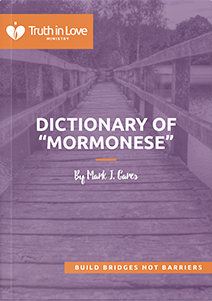The Joseph Smith Translation (JST), also called the Inspired Version of the Bible, refers to Joseph Smith’s revision of the King James Bible. Between 1830 and 1833, Smith claimed to receive divine revelation that restored “plain and precious truths” supposedly lost through centuries of transmission.
Although often described as a translation, the JST was not produced from ancient manuscripts. Instead, Joseph Smith edited, added to, and reinterpreted the existing English text to align with emerging LDS teachings. Portions of it appear in footnotes and appendix references in the official LDS edition of the King James Bible.
For example, the JST version of Genesis 50 adds a prophecy about Joseph Smith himself as a “choice seer” who would bring forth new scripture. In John 1:1, where the King James Bible reads, “In the beginning was the Word, and the Word was with God, and the Word was God,” the JST changes it to, “In the beginning was the gospel preached through the Son. And the gospel was the Word…”—a shift that redefines Christ’s identity and mission.
Mormons regard the JST as inspired but not fully canonized at the level of the Book of Mormon or Doctrine and Covenants. It is viewed as a companion to the Bible that clarifies or corrects doctrinal points.
Biblical Christianity teaches that the Bible, as originally written, is complete and trustworthy. There is no need for restoration or correction, since God has faithfully preserved his Word through careful transmission and abundant manuscript evidence (2 Timothy 3:16–17; Matthew 24:35).

